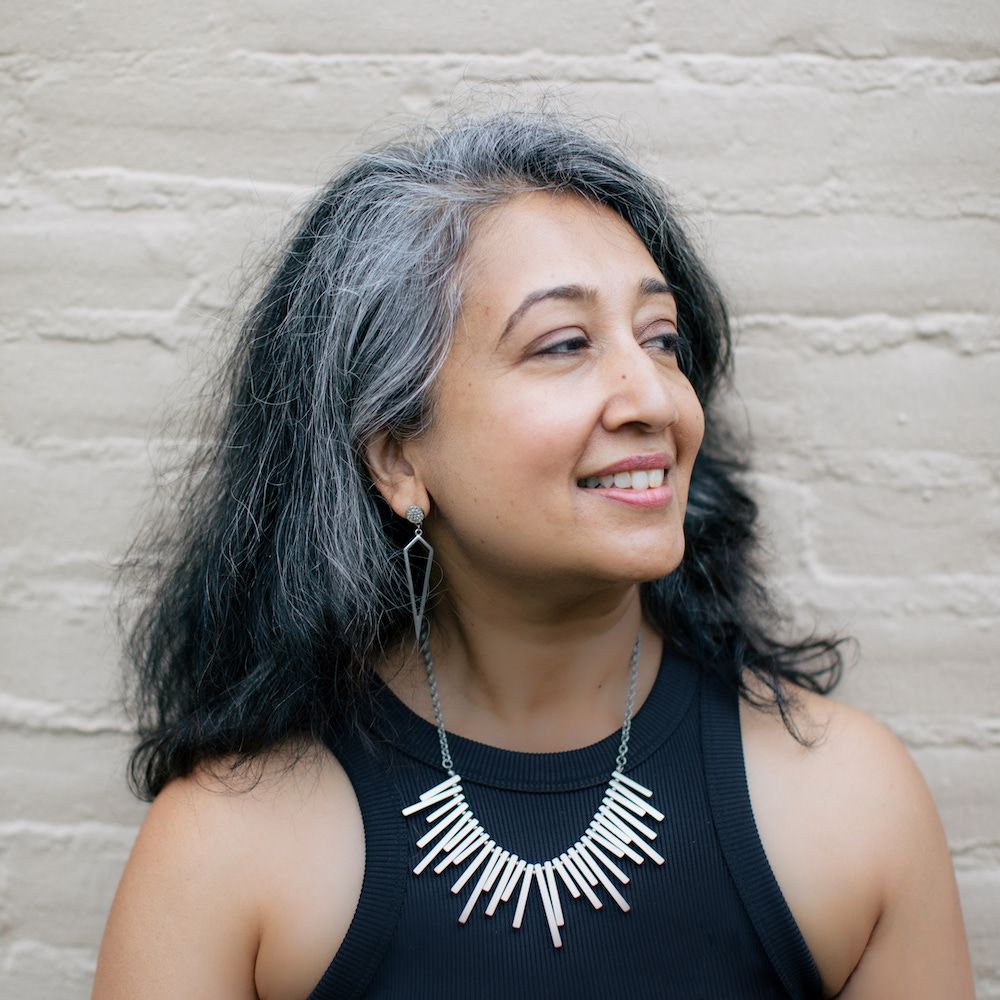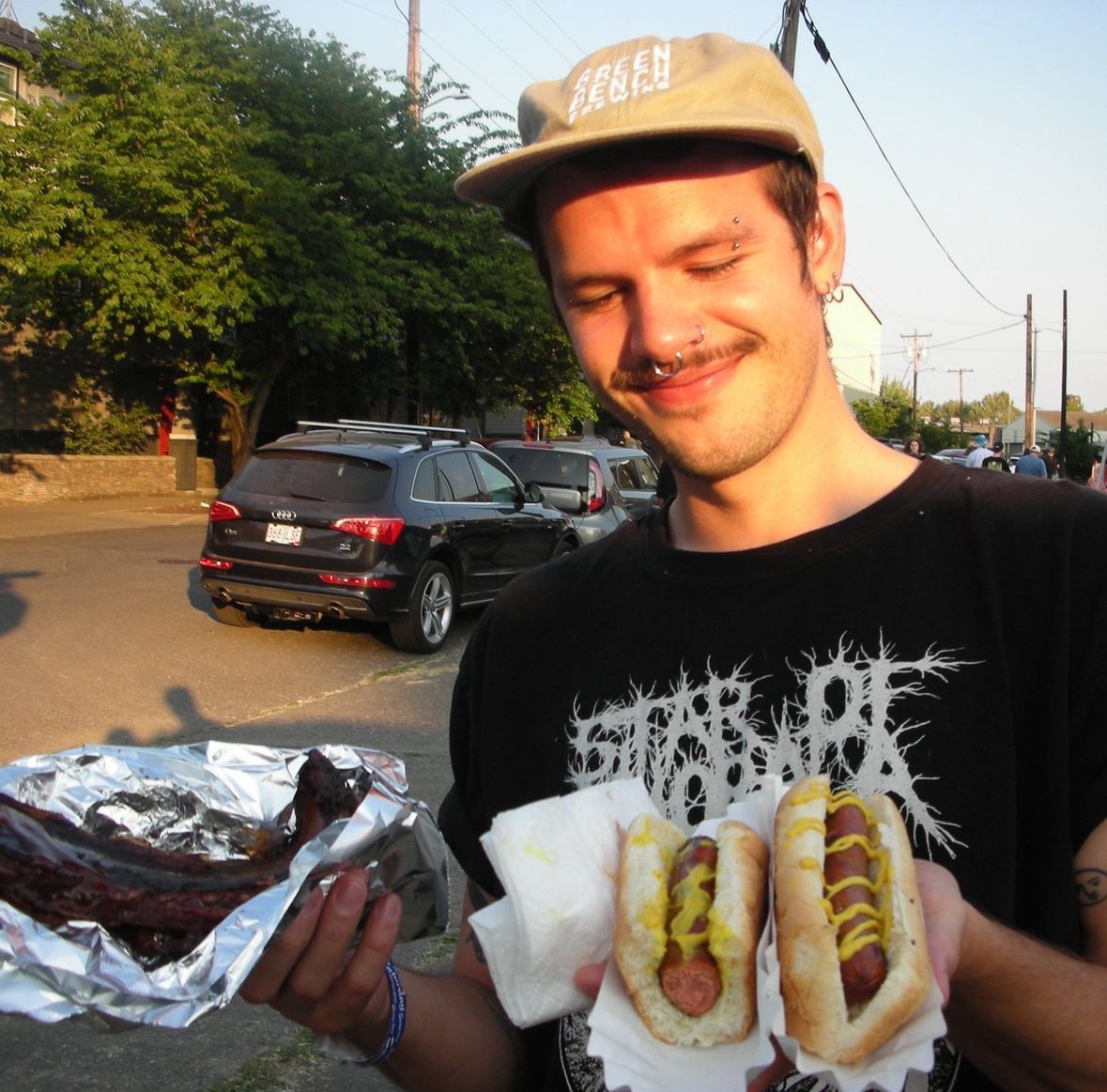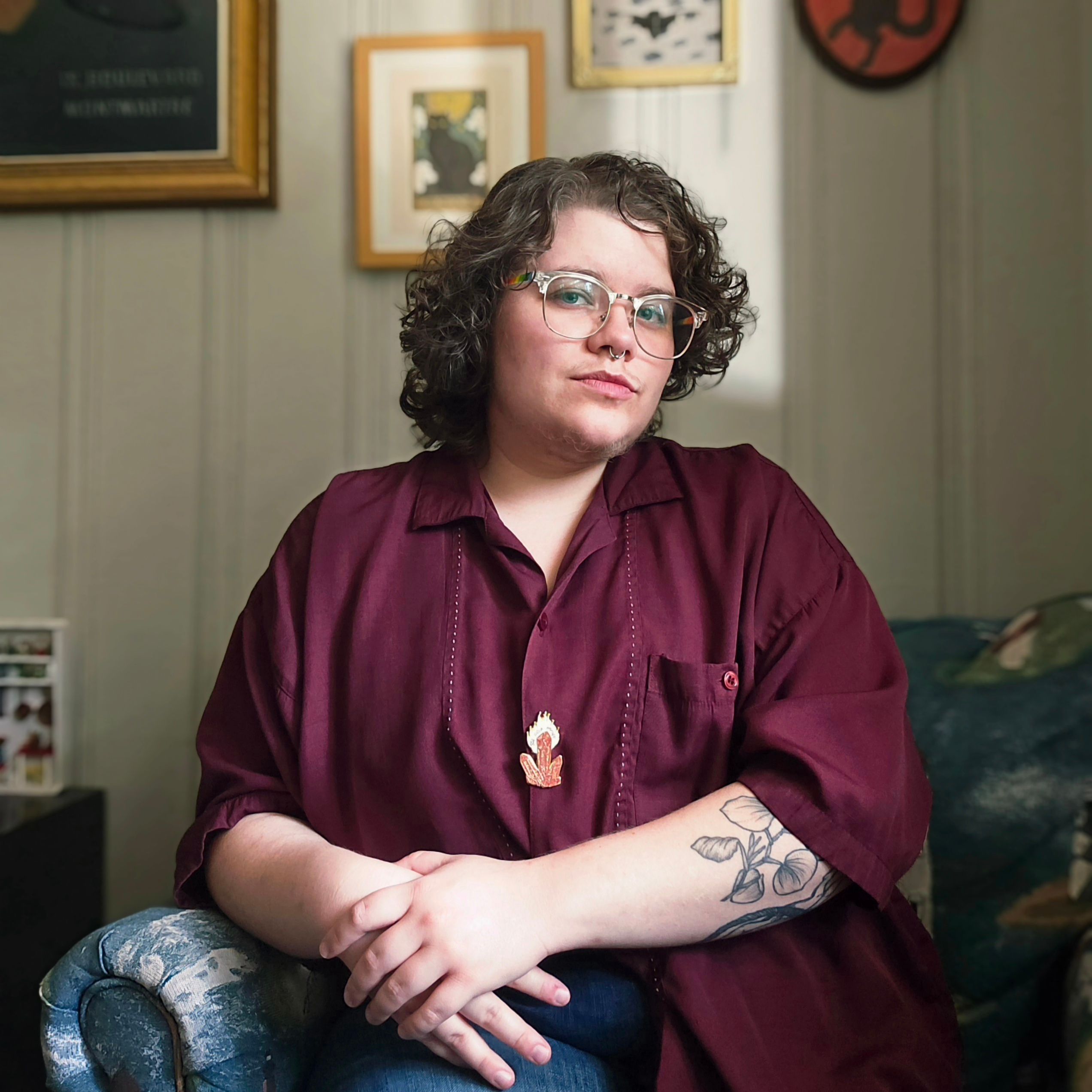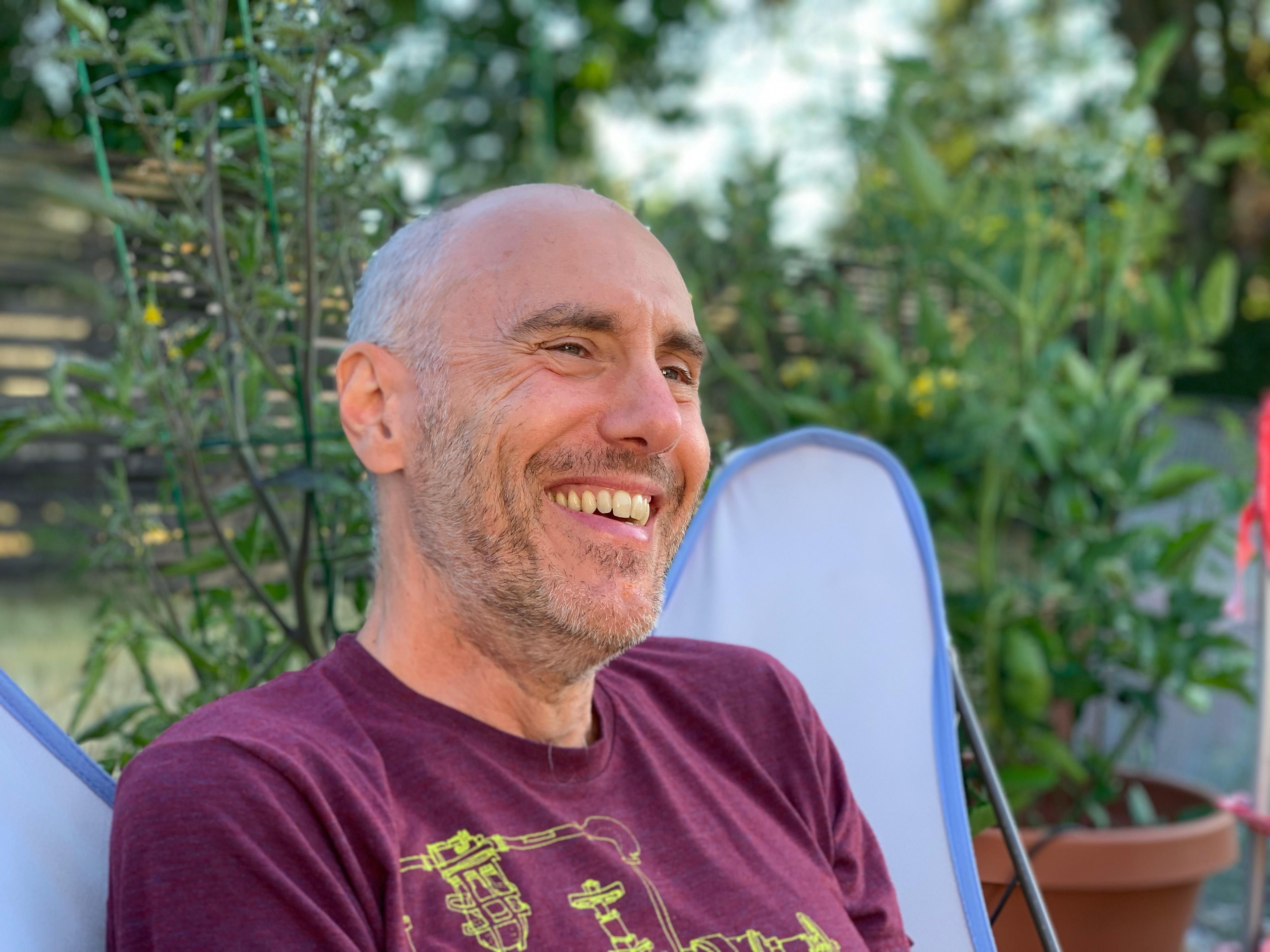In March 2016, I was backstage at a SXSW show in Austin, Texas chatting with the musician Charles Bradley during a work event. He wore a jewel-studded jean jacket over a Diana Ross t-shirt and bright red cowboy boots. This was the second time I had met him, and both times his palpable warmth radiated inside the space; it filled the room. His easy smile beamed across his face, but it was more than that. Later that night, my coworker who had recently lost her beloved mother to cancer was talking to Charles about his own devastating loss. He took my friend into his arms as tears dripped from her eyes. But I saw that she was smiling, too. The joy of feeling understood, I imagine. It was a moment I haven’t forgotten. We all, most of us, I hope, have experienced the profound feeling of talking with someone and realizing I am not the only one. This feeling of connection is for me when I feel most alive. But there is something singularly remarkable about witnessing that connection between two people standing only feet away from you. It puts it sharply into focus. This feeling––the connection of our sorrows joining––and being witness to connections, is at the core of Ross Gay’s meaningful work.
Ross Gay is a poet and essayist. He is the author of four books of poetry: Against Which; Bringing the Shovel Down; Be Holding, and Catalog of Unabashed Gratitude. In addition to his poetry, Ross has released three collections of essays—The Book of Delights (a New York Times bestseller), Inciting Joy, and his newest collection, The Book of (More) Delights (Algonquin Books, 2023).
I spoke with Ross for my podcast Musings of the Artist. This conversation, much like Ross’s poems and essays, is about joy, curiosity, belonging, and caring for one another. One of the things we talked about was the beauty of interactions with strangers–the one who gives you an extra donut, an unexpected kindness found in a laundromat, or the person who shouts bless you when they hear you sneeze down the street. Below is an edited version of our conversation.
The Threads That Hold Us Together: A Conversation with Ross Gay
The Threads That Hold Us Together: A Conversation with Ross Gay
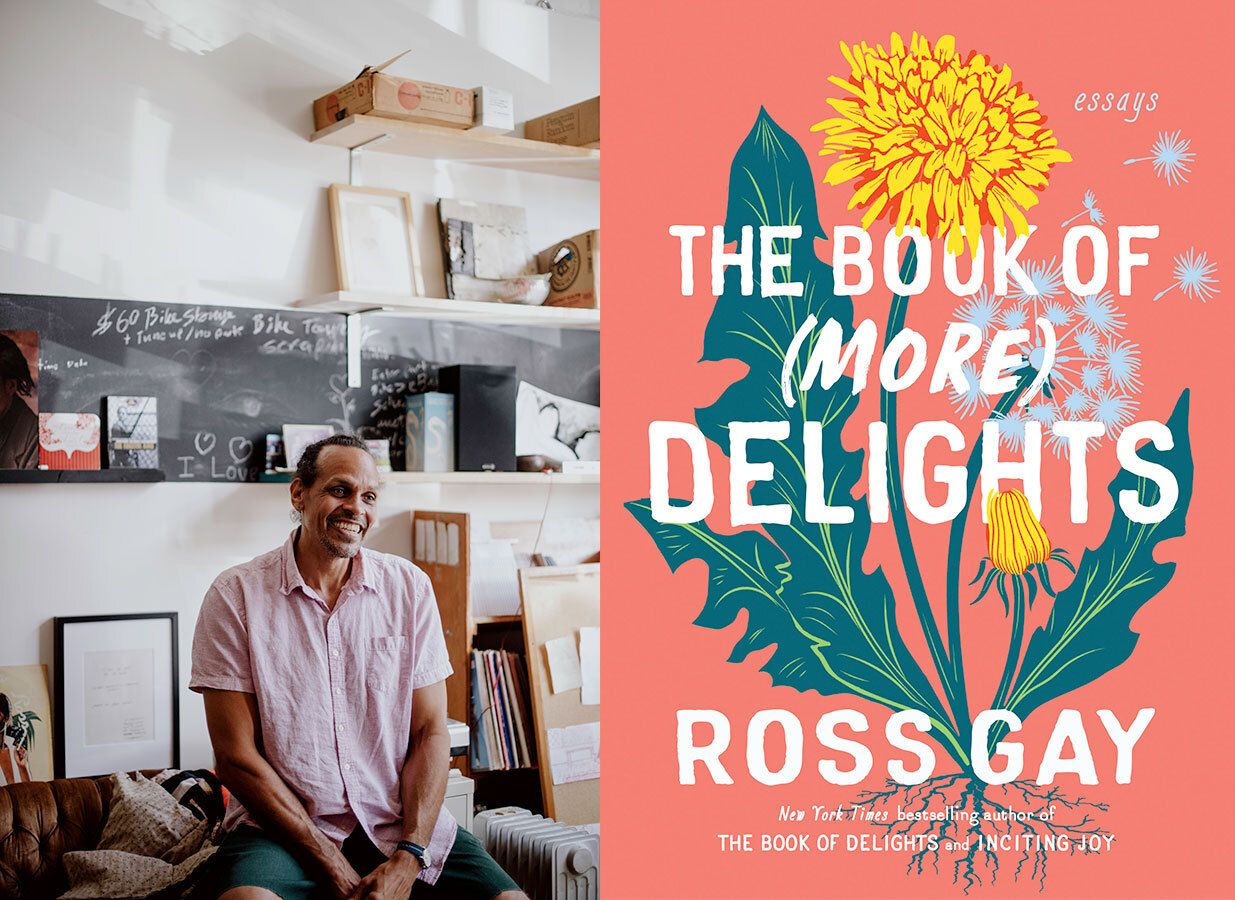
Montserrat Andrée Carty: So much of your work is about the link between joy and sorrow, and about connection. You've said when we know sorrow is not unique to us, we might be less likely to be overcome by that sorrow. I had this recent experience at my MFA residency with a classmate of mine, we discovered that we shared the same trauma. And when we had this discovery, we laughed. I was thinking about this later because, of course, it wasn't funny, and it wasn't that we were laughing because it was funny, but I think perhaps it was sort of like this physical reaction to a lightness that we were not alone in our pain.
Ross Gay: Yes. I know that experience of having my own devastation or sorrow or heartbreak, being made aware that my heartbreak is not unique to me, that it is, in fact, common to others, at least someone else and probably lots of other people. That's kind of one of the things that I feel is why joy is really interesting; the way I think of it is a really interesting state or emotion or whatever you call it, because as far as I'm concerned, it implies or it understands or it carries with it the fullness of our experience, which means the devastation, which means the heartbreak, which means the sorrow.
It's in the midst of tending to one another's sorrows or at least being sort of residing with one another's sorrows that we're also able more seriously to dance and celebrate one another and care for one another. I do feel like what you're talking about, my experience of that kind of thing–when I realized that I share this thing with someone else and it is not only mine, it actually inclines me to share other things. I think that's true.
MAC: Absolutely. Yes. You write on this a lot, and I’ve been thinking about how when we share these deep sorrows and truths, are honest with each other about who we really are and the sorrows we carry, how it connects us with one another on this deep level. And, how maybe there's somebody that you meet that, on the surface, you don't think you have a lot in common with, and then you get to that deeper place and you find something out and it makes you see someone differently. I often think–what if we just walked through the world knowing that if you heard someone's story, you probably are going to love them a little bit more. How much kinder we would be to each other, don't you think?
RG: I know it. Me too. There's some kind of brutality that we inflict on ourselves and other people by pretending that we are not devastated, which is also a way of pretending that the other person isn't devastated. Not that we have to go around all the time like, this is my devastation, but if you're around someone for ten minutes, say, and you just talk a little bit, sometimes it takes an hour, sometimes it takes many years, but you're around them a little bit, and then you realize, oh, your sibling committed suicide, or, oh, you lost a child or, oh, you have a parent with dementia right now. It's just like, "Oh, you're devastated; we have that in common." Even if our devastations are different. Yep. I'm with you. Like what would it mean? What kind of softness or tenderness or curiosity would it be if we walked around like that?
MAC: Let’s talk about your essayette "To respect each other's madness and right to be wrong" from your new book, The Book of (More) Delights. It’s extraordinary, and so important. I read this essay as being about viewing others more generously and also maybe ourselves more generously, right? We're so complicated, all of us. Nobody is one thing and we're so easily dismissing people for one thing or another instead of viewing people more holistically.
This essay also speaks to belonging. As you write: "Precious these days are those who don't fit or go along, who are more wedded to beauty maybe than fame." It’s pointing to being our authentic selves vs. just going along with the program in an attempt to belong. I'm so fascinated by this word belonging. It’s so essential for us to belong, but, it’s really a false belonging if it is not authentic, and maybe a lonelier place to be, right? Why do so many of us feel like we need to try to belong, even if it's not really the space that we truly "belong in," if that makes sense?
RG: Yes, totally, totally. I talk to a lot of writers, period, but I talk to a lot of young writers, musicians and just young people, who make poems or stories or essays and so on. It's so clear that there's such intense pressure to be approved of. Like that thumbs-up button that is really hovering in a way. I know it was there when I was young–I just turned 49–but it wasn't like that.
When I think of that as a kind of guide for how we make serious things, how we ask serious questions, I think, oh, this is horrible. If I'm supposed to have serious questions and I need these questions to be liked, uh-oh, I'm not going to ask serious questions. I'm going to ask the questions that everyone has already asked and gotten the thumbs-up for.
MAC: That's exactly it. In your book Inciting Joy, I remember you talk a lot about your approach as a teacher. I think there is a huge tie to this thing of belonging and our earlier experiences in school. My dad recently shared with me his school report from when he was younger. He moved from Colombia to the States when he was a kid, not speaking a word of English. He felt quite isolated. Not only because of the language, which was of course a huge barrier.
The teachers were saying that he was so good at art, that he loved painting, he loved making music, and if only he would spend that time on his math. I was thinking about how we were often taught that the areas that we are supposed to be smart in are misplaced. That being smart in art and music is not as important as the math, or the science. At least, that was something that was really drilled into me in school.
But throughout my family, my dad, my brother, my sister, they really were like, "I'm not going along with this program. Nope. I'm doing my own thing." I admire that so greatly. I was not that way. I so wanted to belong. I would try so hard to be an A student, and I felt shame around it. I also came to the States from Spain and had an accent I worked hard to shed, and a different learning level. I really tried to be good at math but realize now I just suck at math and maybe that's okay. I wanted to bring this to you because I know it's something that is important to you too, to talk about these other ways that we can be and how this is maybe where it begins?
RG: Yes, I hear you. I hear you. It's funny when you were saying that, I was thinking, my mother was just here. She just left two days ago. We laughed because I was a really "good student," until I was like 11 or 12. Then I just got like, why am I doing this? I started questioning it a little bit as a kid. I realized this long after the fact that, when you're a child so often, also when we're adults, people tell you what to do and you're not supposed to be like, "Hey, hang on, why are we doing this? Why are we all doing this?"
I had that feeling as a kid, but I couldn't articulate it. I can remember plain as day sitting in Mrs. Smith's Chemistry class. She was a lovely and very kind person. She wasn't dismissive or mean or anything like that, but I could not get it through my head. I think in part, I couldn't get it because there wasn't that sort of thing built in, the first thing we're going to do is say why you might want to learn this. We're going to actually appeal to your curiosity as opposed to your desire, some of you, to be obedient.
I remember sitting there fantasizing about punching through that little glass thing where the eyewash and stuff was. Which is to say that, although shame could be part of that, I'm connecting to your experience. I could feel shame about, for instance, not being good at X, Y, and Z, but I also felt rage too. I think rage, of course, was a way of hiding or coping with the shame. I would sit in class seething. Probably I was seething because I was ashamed that I didn't understand certain things. At the same time, I was very good at other things. I was very good at football. So I had a certain kind of experience in school that was on the other side of that. A lot of people have that experience of they're not into gym class or whatever, but that's all I was into.
MAC: You played football in college, and was that when you became interested in poetry?
RG: Yes, in a real way. I had a class–I was actually very close to failing out of college, failing out of football is sort of how I thought of it at the time. I had a professor who introduced me to the poems of the poet Amiri Baraka and then I just started reading poems. I think it was as quick as that. I think he introduced me to whatever the Amiri Baraka poems in the anthology that we were using, he made me give a presentation on Baraka and then I was just reading poems.
That being said, as a kid, even when I wasn't doing school, I wasn't getting good grades. I was deep into music. I was really studying lyrics. I was also with some of my friends, being bad in ways that were, when I look back, I realize "Oh, you all were making little performances and little pieces."
We figured out at some point that if by accident, I left a piece of fruit in my locker over the weekend and I opened my locker and poof, the hallway was full of fruit flies. So we just did that. We would just make sure there was always a piece of fruit in a locker. It was a piece, and we did a lot of pieces. At the time, I was just like, yes, we're just being bad and stuff. But looking back, I'm like, "Oh, no, no, no. You were fiddling with form. You were actually thinking about performance and stuff."
MAC: Wow. It's such a great story. When I ask about how an artist became an artist or how they were able to break from that rigid academic structure, almost without fail, it's one teacher that showed them something or showed them their potential. I love that you shared that in your own story, but also that you can look back now on when you were younger and see that spark in you already. It makes me think, too, how wonderful would it be if all of our teachers in the classroom, instead of asking are they (the kids) smart, instead ask how are they smart, and nurture each student’s passions and curiosities, how different the world would be.
RG: Totally. Exactly. It's like, what do you love? What do you love to do? What do you love to think about? Also, what are you really interested in that you don't know how to do?
MAC: Yes! Absolutely. I was thinking, too, as we're speaking, about the poet Gregory Orr, who I recently spoke with. He had a really hard early life–he felt doomed in a lot of ways. Then this one teacher showed him poetry and that opened up his whole world. That's just so beautiful, how a teacher can do that, and how it can also happen the other way. In fifth grade, I wanted to read The Joy Luck Club so badly. I remember seeing a stack of the books and how some of my peers were reading it, and how my teacher told me I couldn't read it because it was too advanced for me. It really made me feel so small. I’ve been going back to that memory often now, because my passion for writing and reading completely bloomed in my 30s. It was like I became alive in a way that I hadn't before. I think, what if that had happened earlier?
RG: Yes, I think you're totally right. If we're able to even frame those things, the experience of watching, looking at that stack of books and wanting to read that book, it's like, oh, yes, you were an aspiring reader, writer. You were in it, even if you didn't do it for another two years. Yes, you were in it. I feel if we are lucky enough to be around young people or work with young people at all, to be able to recognize when young people are doing things that typically are called not worthwhile, et cetera, to be able to be like, wait, what are they working on? Kids who really, really work hard and are not going to school–okay, you got a skill, but what is it? Let's just figure out what it is.
MAC: Precisely, exactly that. Also, I'm now thinking too about Naomi Shihab Nye, the poet, one of my favorite people in the world. She also talks a lot about this, about being a young person daydreaming and being scolded for that. And how, oh, that was actually her strength. That was the thing that was so beautiful.
RG: That's right. The way you just said it, it's just so right. Even pointing back to the essay, it's like what you just said- how many folks who you've talked to or how many people are doing this stuff, they've been told that they are wrong. It's a bummer to be a kid to be told what's wrong, but there is something of note, of value, of use, of wonder or something to be wrong. I feel like that's one of the deprivations and destitutions of also the kind of culture that so monitors and so polices each other in these ways. It's like, if you don't have it down, don't do it. As opposed to being like, you know what? Try, flail.
MAC: Yes–what if we encouraged that? How different would the world be? How different would we be?
I wanted to also just touch on this idea of these little tiny interactions with strangers because this is also prominent in your work. I’ve been thinking a lot about it these last two years in a personal way because I've been nomadic, without one home, and I travel alone. For me, these interactions at the coffee shop are actually quite vital and feed me in such a deep way.
There's a crisis of loneliness right now which we keep hearing. I think when we talk about connection, often what comes to mind is, our partners, our family, our close friends. Yes, that's of course important, but I actually think that no matter who you are, or where you are, you can find these moments of connection out in the world, anywhere at any time.
RG: To me, that's actually the fabric of life. I think I have that discovery in one of these essays, I'm in the laundromat, and the woman working in the laundromat goes to such lengths to help me out. Someone took my clothes accidentally and she's like, "Oh." Trying to figure it out and get my phone number for when they come back. It's such simple little care takings and interactions. She didn't get my phone number so we can have coffee. She got my phone number just so she could be like, "Hey, your clothes came back."
This itself feels like the threads that hold us together, those little things. I was just at the coffee shop myself a few hours ago and the person down there said, "How are you doing? I just got a dog. There was a hoarding situation. There were like 90 dogs and I kept my eye on this one dog, and here's a picture." That just makes me want to be alive.
MAC: Yes, yes. That’s it, exactly. I was having a bit of this existential crisis after my birthday last week (dramatic, I know). It often seems to happen, two days after my birthday, after the candles have been blown out, the phone calls stop and then suddenly I'm like, "What am I doing with my life?" [laughter] All to say that I was in that headspace and feeling lonely and then I just went to the coffee shop and I had this beautiful interaction with the barista who remembered my name from the last time. I was like, "Oh, you're fine Montse." I just share that because I think sometimes we forget that that's out there for us. These moments are out there, and we just have to be open.
RG: That's it. You have to be open. If you are open, it's like walking down the street can be such a kind of sweet adventure. If our eyes are open to it, our ears are open to it, our hearts are open to it, it does feel like very often you might bump into someone or you might observe something that is just like, "Whoa, that is a small, miraculous little thing that was just offered to me." Someone pointed to you to be like, "Oh, there's a hawk up on that phone pole," or, "Hey, I got an extra donut. I got too many donuts." That happens all the time.
MAC: All the time. How beautiful to notice it. Yesterday, I was walking down the street, and I sneezed. The person in the car, a couple of cars down yelled out, "Bless you." I just was skipping and happiness the rest of the way, you know
RG: Yes, totally. I like to ask for directions for that reason. Because people do their damndest to give you directions.
MAC: It's beautiful. I'm just finishing this book, and I'm wondering if you've read it. It's called The Sound of a Wild Snail Eating.
RG: Yes, totally. It's so lovely.
MAC: For people who haven't read it, what I think is so astonishing about it is it's about a woman who falls really ill all of a sudden and she can't get out of bed, and she becomes enamored and fixated on a snail. She develops this real strong attachment to a snail and its small movements. I just think it's a beautiful reminder to us that if we can just slow down to notice these things, we can find connection no matter where we are.
RG: That's it.
MAC: What is an act of kindness that you've received in your life that had a big impact on you?
RG: My mom giving birth to me was a good one. Let me think, though. That's a beautiful one. We have this garden here and there's so, so many plants here that were gifts that were just dropped off or shared. I'm a lucky person in a million ways, but one of the ways is that people at readings will sometimes give me seeds. That feels incredible to me.
MAC: What a wonderful life to have all those little things, when you think about them, and you add them up, and you notice them. That’s a beautiful life to me.
RG: Totally. Me too. I'm so glad you're pointing these things out, like what you might call small generosity, although there's no such thing as a small generosity, like these things that are daily and you might overlook them. When you notice and it makes you skip that someone said, bless you from three cars down, I think it inclines us to offer the same little generosity ourselves. It is like contributing to suturing the world together.
The Book of (More) Delights is available from Algonquin Books now.

Montserrat Andrée Carty
Interviews Editor
Montserrat Andrée Carty is a Spanish-American writer, photographer, and the Interviews Editor for Hunger Mountain. She holds an MFA in Writing from Vermont College of Fine Arts and is working on her first book. Find her online at www.montseandree.com.



